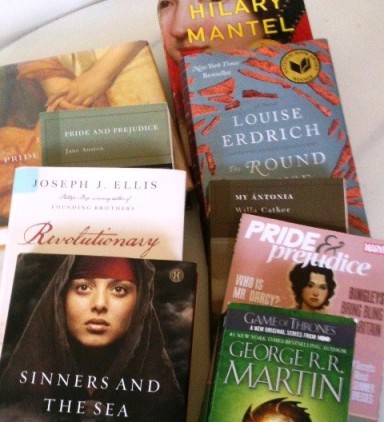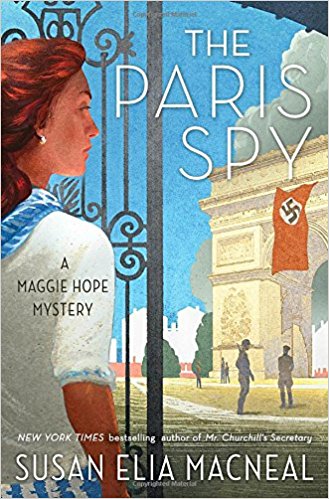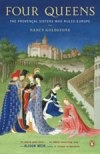 I greatly enjoyed A Very Long Engagement by Sébastien Japrisot, but for me it was a bit of a bait-and-switch book. It starts off very much like a suspense novel, with tension and mounting dread. I found myself completely riveted by the first chapter in which French soldiers are marching through one of the First World War’s infamous trenches.
I greatly enjoyed A Very Long Engagement by Sébastien Japrisot, but for me it was a bit of a bait-and-switch book. It starts off very much like a suspense novel, with tension and mounting dread. I found myself completely riveted by the first chapter in which French soldiers are marching through one of the First World War’s infamous trenches.
“Watch out for the wire.”
Indeed, Japrisot is known for his crime writing and has been nicknamed the “Graham Greene of France.”
But then, the novel takes on a more quiet and reflective tone—somewhat the inverse of say, Ian McEwan’s Atonement, which begins with more reserved prose and moves to breathless action at Dunkirk.
I had a little trouble shifting gears with Japrisot. I flew through the opening scene, and then it took me a while to get into the rhythm of the rest of the book. This is not a subway read but is best enjoyed if you can spend some time sinking into it.
Overall, I found A Very Long Engagement to be rewarding, moving, and thought-provoking—somewhat reminiscent of a Marcel Pagnol novel in the sense that it offers a glimpse into this fleeting, evolving moment in France. The characters are trying to put their lives back together while dealing with grief, hardship, and the aftershocks of the Great War. This novel feels especially resonant as we head into the 100th anniversary of the start of that conflict this July.

Now, I am eager to see the film.
A thread of mystery pulls us through the story, as the heroine Mathilde searches to find out what happened to her fiancé Manech, who has been reported “killed in the line of duty.” She goes on a scavenger hunt, sifting through a tangle of clues gleaned by word-of-mouth, letters from survivors, ads placed in newspapers, and the work of a private detective. I won’t offer any other plot details, except to say that the ending offered a satisfying resolution that was not predictable.
I went back to reread the first chapter and found that I had missed this lovely, layered transition from the trenches to Mathilde, which also somewhat encapsulates the essence of this book:
“There was still that wire, mended whenever it broke with whatever came to hand, a wire that snaked its way through all the trenches, through all the winters, now up at the top, now down at the bottom, across all the lines …
Mathilde has seized hold of it. She holds it still. It guides her into the labyrinth from which Manech has not returned.”





 Check Out WordHits on Facebook
Check Out WordHits on Facebook


 As a kid, I loved Betty and Veronica and all the superheroes comics. I don’t read them much anymore. (I go to all the movies!) When I see the Marvel or DC logo, warm memories of childhood summers flush to the surface. For Christmas, I got my 10-year-old godson the DC Comics Encyclopedia. He already had the Marvel one (the boy is very advanced).
As a kid, I loved Betty and Veronica and all the superheroes comics. I don’t read them much anymore. (I go to all the movies!) When I see the Marvel or DC logo, warm memories of childhood summers flush to the surface. For Christmas, I got my 10-year-old godson the DC Comics Encyclopedia. He already had the Marvel one (the boy is very advanced). Austen Fans Celebrate 200 Years of ‘Pride and Prejudice’
Austen Fans Celebrate 200 Years of ‘Pride and Prejudice’ In an attempt to criticize Kate Middleton,
In an attempt to criticize Kate Middleton, 

 I don’t know what it is about ‘Spring Forward,’ but I always find myself reshuffling my TBR pile. During winter, the early darkness and the cold winds prompt me to reach for heavier, atmospheric tomes. I started off November with Bring Up the Bodies, Hilary Mantel’s study of Thomas Cromwell versus Anne Boleyn. I followed that with mostly moody fare like G.R.R. Martin’s A Storm of Swords, Charles Dickens’s A Christmas Carol, The Tenant of Wildfell Hall by Anne Brontë, and one of my favorite Shakespeare plays, Richard III (after they found him in a parking lot in Leicester). Shakespeare’s histories and tragedies feel like winter reading, but the comedies seem more apropos to spring and summer—except of course, Twelfth Night and A Winter’s Tale, which I should really put in my rotation next December.
I don’t know what it is about ‘Spring Forward,’ but I always find myself reshuffling my TBR pile. During winter, the early darkness and the cold winds prompt me to reach for heavier, atmospheric tomes. I started off November with Bring Up the Bodies, Hilary Mantel’s study of Thomas Cromwell versus Anne Boleyn. I followed that with mostly moody fare like G.R.R. Martin’s A Storm of Swords, Charles Dickens’s A Christmas Carol, The Tenant of Wildfell Hall by Anne Brontë, and one of my favorite Shakespeare plays, Richard III (after they found him in a parking lot in Leicester). Shakespeare’s histories and tragedies feel like winter reading, but the comedies seem more apropos to spring and summer—except of course, Twelfth Night and A Winter’s Tale, which I should really put in my rotation next December. This spring, I plan to finally reach for The Lacuna, Barbara Kingsolver’s novel about Diego Rivera in Mexico. I’m embarrassed to admit that I will be digging into the hardcover, which I bought ages ago. (Sigh, the perils of the TBR.) Kingsolver’s Animal Dreams, The Bean Trees, and Pigs in Heaven are also great reads for the sun-starved.
This spring, I plan to finally reach for The Lacuna, Barbara Kingsolver’s novel about Diego Rivera in Mexico. I’m embarrassed to admit that I will be digging into the hardcover, which I bought ages ago. (Sigh, the perils of the TBR.) Kingsolver’s Animal Dreams, The Bean Trees, and Pigs in Heaven are also great reads for the sun-starved.




